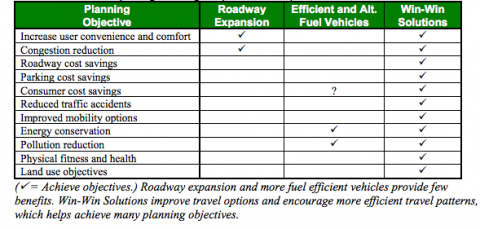
By Amanda Witherell
The Government's plan to construct Roads of National Significance is a decade too late, according to a talk given by Todd Litman, a transport policy expert visiting Wellington from Victoria, Canada.
As part of the Motu Economic and Public Policy Research Centre's seminar series in May, Litman said car use has peaked.
"It's time to employ a new urban planning model - one that favours accessibility over mobility - in order to meet increased consumer demand for walking, cycling and public transport," he said.
"During the 20th century motor vehicle usage grew steadily. By the year 2000, everyone who could and should have a car had one," Litman told the room full of planners and policy analysts.
Decline in the auto industry is due to an aging population, increases in fuel cost, urbanization, traffic and parking congestion, roading costs, changing consumer preferences, environmental and health concerns. He cited an Economist article from 22 September 2012 that went further, showing how the next generation is less inclined to get behind the wheel, and not even learning how to drive until later in life, if at all.
"Change in consumer demands is a terrific opportunity to save money and satisfy people's demand for walking, biking, and public transport," he added. "Unfortunately, the planning community is not taking advantage of this. We need to expand the scope of planning objectives. Formerly, it was focused on the speed of travel. I think there are a number of other objectives."
Litman showed a list of planning objectives fit for 21st century "smart growth". He pointed out that building more roads only satisfied two of them - increased user convenience and reduced congestion - but constructing "complete streets" ticks all the boxes and results in greater cost savings, safety and health.
"These reforms would be justified on purely economic grounds. That's my main message," he said.
"Motorists benefit, too. Complete streets are not anti-car any more than a healthy diet is anti-food.
"Improved safety and travel options are often the quickest and cheapest ways to improve driving conditions. There's something for everyone."
The audience questioned Litman on some of the more contentious tenets of smart growth communities, such as greater infill development, and removing on-street parking to make room for cycle and bus lanes.
"We are so accustomed to car dependence we don't ever question it," he responded. "On roads, the priority shouldn't be storing vehicles. Improving mobility should have priority over parking. If improving mobility shifts a small amount of people to alternative transport, it frees up parking spots. Some retailers don't like it, but you can identify where customers can park around the block with signage and real time info."
Wellington already has effective examples of both those solutions. Along Newtown's Riddiford St, shoppers are encouraged to park at the new Countdown supermarket, a concession that was required by the city in exchange for resource consent. And new signage in Wellington points drivers to empty car parks throughout the CBD.
"Our job as planners, policy analysts and politicians is to prepare for the future. In what kind of community would you want to live in 10-20 years?" he asked the assembly. "Your future self would probably be lobbying you now to make a more walkable, bikeable and liveable community."
Victoria Transport Policy Institute: www.vtpi.org/
